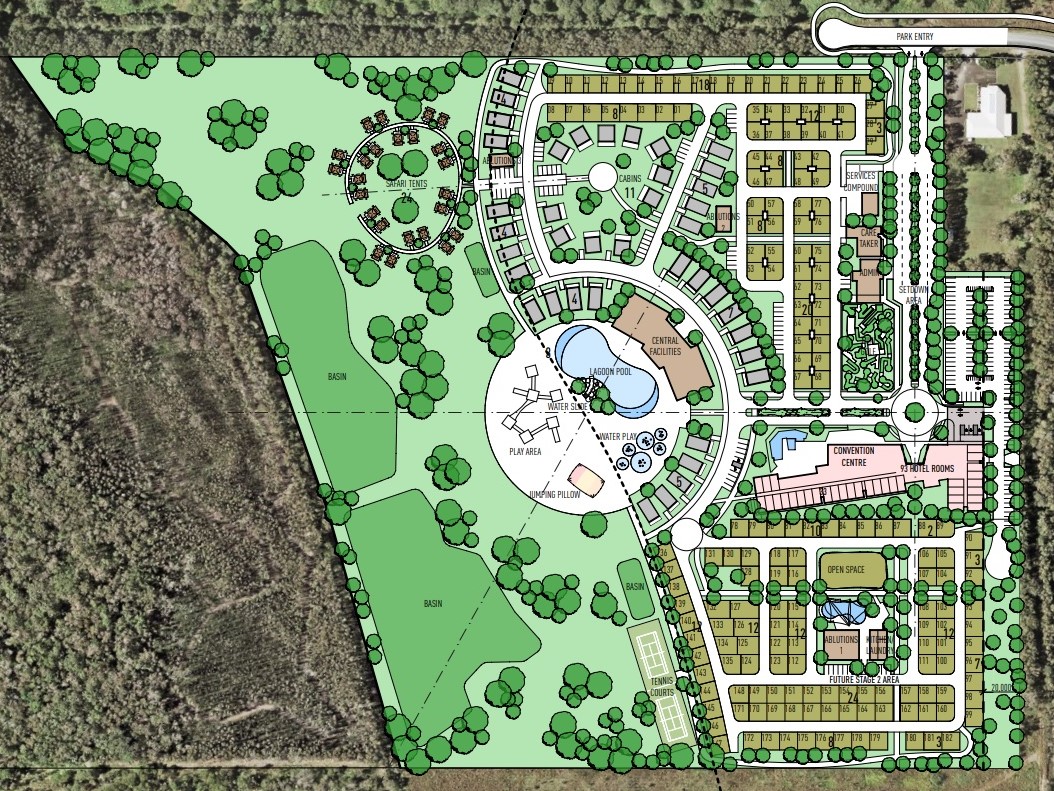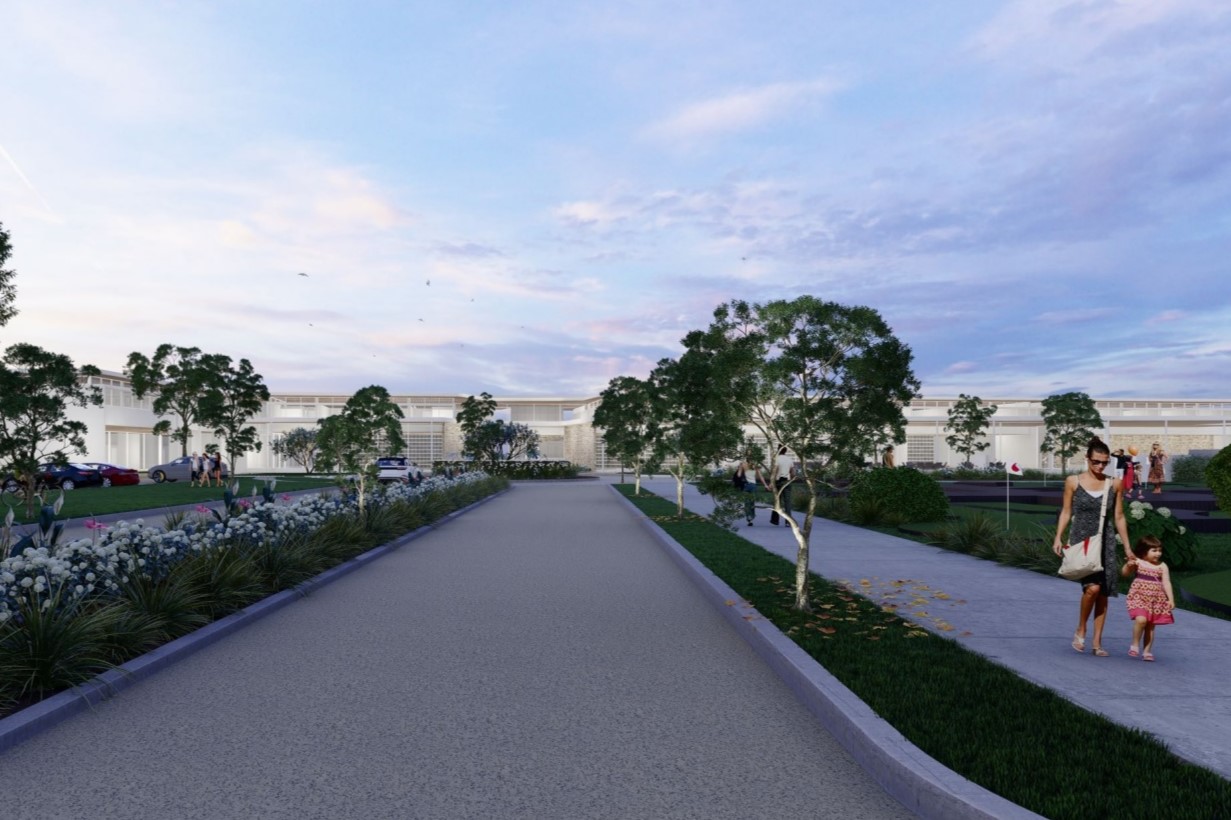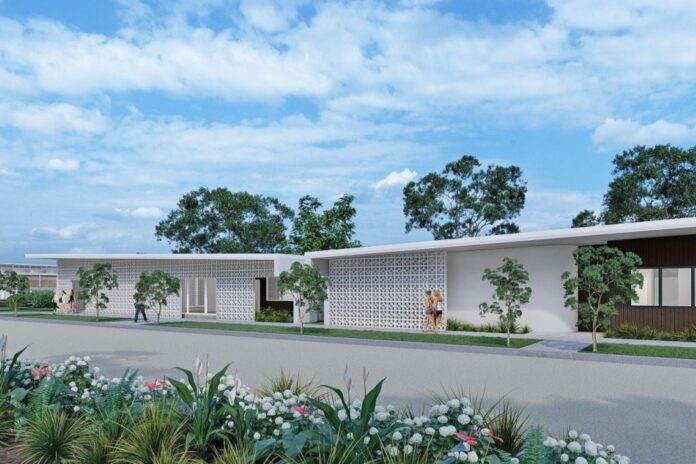A property developer is appealing to the Planning and Environment Court over its application to create a tourist park and short-term accommodation on 34 hectares (84 acres) at Meridan Plains.
Ruby Developments Pty Ltd submitted an application for a development permit for a material change of use for a tourist park, function facility and short-term accommodation to Sunshine Coast Council in March 2021. It went on public notification in August 2022.
The proposal for the short-term accommodation involved building 93 studio rooms plus a bar, dining room, pool, spa and deck over a gross floor area of more than 4600sqm.
The tourist park proposal initially included 185 campsites, 40 cabins, 24 safari tents and ancillary facilities.
In August 2022, this was amended to 182 campsites that would be delivered in two stages, with 77 campsites plus the cabins and safari tents in the first stage, followed by 105 campsites in the second stage.
The function room, which would have accommodated 220 people, was also removed from the plan.
In January, the council refused the short-term accommodation component of the application and approved Stage 1 of the tourist park, subject to conditions, but refused Stage 2.

In its notice of appeal to the court, submitted by Connor O’Meara Solicitors on behalf of Ruby Developments, it asks for the council’s decision to be set aside and for the application to be approved in full, subject to amended conditions.
The land, at 17 Westaway Road, Meridan Plains, is to the north of Caloundra Road and Corbould Park Racecourse, with the under-construction Honey Farm Sport and Recreation Precinct to the north and west. A residential estate is to the east across Kawana Way Link Road.
In its negotiated decision notice, the council states that the short-term accommodation component was refused because it was “of an intensity and scale that is not expected in a rural precinct”.
But the developer’s appeal contends “the rural zoning of the land is not reflective of the landscape values or character of the land and its surrounding locality” and the building, which would be more than 130m long, would have “a built form, scale and intensity consistent with what is expected in a rural precinct”.

The approval of Stage 1 allows for the development of the 77 camp sites, 40 cabins, 24 safari tents and ancillary facilities, but the developer’s appeal states no reasons for the refusal of Stage 2 were provided.
The developer is also appealing the imposition of 13 conditions for the tourist park component. Among these are the need to provide a carparking space within each safari tent site; amendments to stormwater design; having all structures above the defined flood level, which would require the safari tents – which would be built on piers – to be removed; the transfer of 18.4 hectares to council for drainage purposes, with the developer instead proposing a drainage easement; and the requirement for a 46-metre setback for bushfire management purposes, instead of the proposed 44 metres.
It also requests that a condition requiring the provision of an on-site wastewater treatment and effluent disposal system be changed so it is only required until such time as the land is connected to reticulated sewerage.
Council’s reasons for refusal for the short-term accommodation also stated that “it has not been demonstrated that there is a pressing economic need” for it, and that “it has not demonstrated an appropriate connection to urban services, including reticulated water and sewer, can be provided”.
Sunshine Coast News understands the key principal of Ruby Developments is Peter Puljich, the founder of Living Gems.
According to its website, Living Gems is “an experienced, established developer of master-planned over-50s lifestyle resorts throughout Queensland”. It has resorts at Pacific Paradise and Maleny.
No date for further review of the matter has yet been set.
Do you have an opinion to share? Submit a Letter to the Editor at Sunshine Coast News via news@sunshinecoastnews.com.au. You must include your name and suburb.





